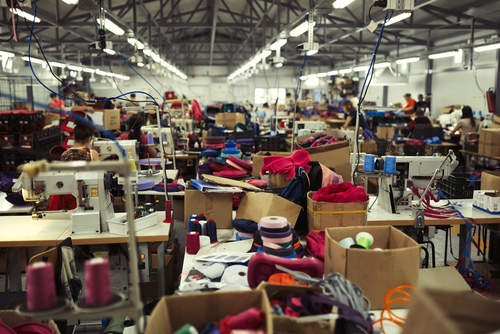
Gap Inc., the parent company of fashion brands Athleta, Banana Republic, GAP, and Old Navy, has signed the Pakistan Accord for health and safety in the textile and garment Industry.
The Worker Rights Consortium (WRC) hails the move as a positive development in the realm of brand-labour agreements. The accord, which is legally binding, has already garnered support from 65 companies, encompassing over 450 factories that employ nearly a million workers in the region.
A call for more US brands to sign the Pakistan Accord
“Gap signing on is a big deal and will likely lead to more signatories from the US,” said Scott Nova, executive director of the Worker Rights Consortium.
He added: “The pressure is now on Levi’s, Target, Urban Outfitters, and other US brands and retailers to sign.”
Levi’s, Target and Urban Outfitters had not responded to Just Style’s request for comment at the time of going to press.
The WRC claims that despite the programmes’ progress, US brands have been relatively slow to participate in comparison to their European counterparts.
However, with Gap Inc. leading the way, the WRC hopes there will be a surge of US brands signing the accord to uphold their commitment to protecting the lives and wellbeing of workers at their supplier factories in Pakistan.
Addressing systemic safety deficiencies in Pakistan
The WRC says the situation in Pakistan’s apparel and textile factories has long been plagued by safety deficiencies, making it a pervasive problem that requires collective action from all stakeholders. It states that more than 250 workers lost their lives in the 2012 Ali Enterprises factory fire in Karachi, marking it as the deadliest fire in the history of the global garment industry.
It adds that subsequent voluntary auditing systems have proven inadequate in safeguarding workers in Pakistan, as injuries and fatalities in factories continued to occur, with at least 19 deaths and injuries recorded just last year.
The Pakistan Accord on Health & Safety in the Textile & Garment Industry emerged as a solution to these persisting challenges.
The Accord’s key features are designed to address the issue, ensuring a safer working environment for all workers in the brands’ supply chains.
The Pakistan Accord agreement:
- Is legally binding on brands
- After comprehensive health and safety inspections to uncover hazards, mandates time-bound renovation plans to eliminate those hazard
- Ensures suppliers have the resources to pay for renovation
- Will protect all workers throughout the brands’ supply chain
- Provides workers with a confidential avenue to surface urgent safety and health concerns and secure swift corrective action
- Documents its performance through extraordinary public transparency.





